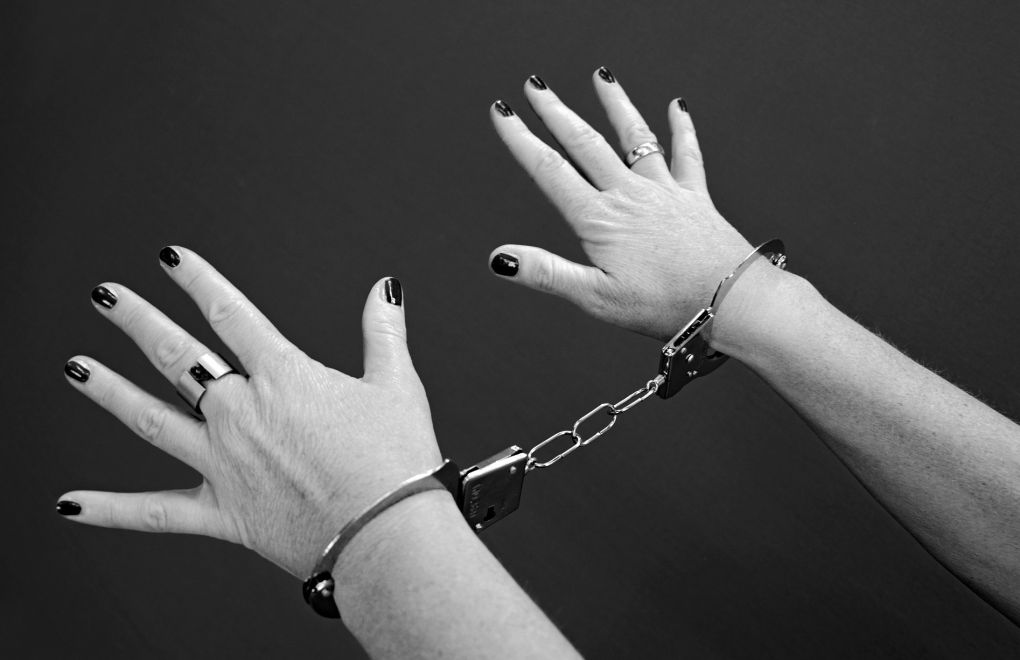Click to read the article in Turkish
An article in the law on criminal enforcement that entered into force today (April 15) has paved the way for arrestees and convicts to be taken out of prisons and to be held in interrogation for up to 15 days.
We are actually familiar with this practice from the statements in court minutes where, especially in political cases, the statements of secret witnesses or witnesses constantly change or they are "adapted to the situation." This practice was also legal when there were still "specially authorized courts" in Turkey. However, with the abolishment of these courts in 2012, this practice has also become obsolete.
As it can be remembered from the statements of "permanent witness İ.Ö.", which bianet previously reported, hundreds of defendants were given heavy prison sentences, including aggravated life imprisonment, in those files which give witnesses the chance to change their statements whenever they want and adapt them depending on the developments in the file.
However, the main reason why legists oppose to this recently enacted legal arrangement is the possibility of torture to be inflicted on the prisoner who will be taken out of the prison and interrogated in an unknown place and under unknown circumstances for a period of up to 15 days.
In fact, the psychological pressure and threat to the person begin at the very moment when he or she is taken out of the prison without any explanation and, in a sense, taken on a journey to the unknown.
Loopholes in the law
According to the Article 92 of the Law on the Execution of Sentences and Security Measures, which entered into effect today (April 15), on the condition that the judgeship gives approval, security forces will be able to take the arrested or convicted person out of the prison to interrogate him or her for a maximum period of 15 days.
In theory, it is indicated that the permission of the prisoner is necessary; however, how it will function in practice raises a question mark.
The loopholes in the law can be listed as follows:
- Where will the prisoner be held for 15 days? In what conditions will he or she be taken there?
- Will the prisoner be informed about where he or she is being taken and for what reason?
- Will the security personnel who take the prisoner out of the prison introduce themselves? Will they explain their aims?
- Will the conditions where the prisoner is to be held for 15 days conform to human rights?
- Who are the "relevant authorities" indicated in the law? Police and gendarmerie come to minds first; however, as there is no restriction, will the National Intelligence Organization (MİT) members have this right as well?
- Why is this interrogation process not carried out inside the prison? Why is this method especially preferred?
- Will the prisoner be entitled with the rights in the law as a suspect or defendant? Can his or her attorney accompany the interrogation?
- Will the medical examination to be made before and after leaving the prison comply with the law? What kind of a guarantee will be given to assure that the previous bad examples will not be repeated in issuing the medical report?
- Why does the legal arrangement cover only "the offenses committed within the frame of terrorism and organized activities?"
What does the law foresee?
With the amendment introduced with the recent law on criminal enforcement, the Article 92/2 of the Law no. 5275 is amended as follows:
"When it is deemed necessary to inquire the veracity of the information obtained as to the offences committed as part of terrorism and organized activities, arrestees or convicts, on the condition of their permission, can be taken out of the penal institution for temporary periods of time upon the request of the relevant institution and the Chief Public Prosecutor's Office and as per the verdict of the penal judge of peace.
"After the arrested or convicted person is heard, depending on the nature of the work, these periods shall be specified by the judge on the condition that it does not exceed four days every time and not exceed 15 days under any circumstances. The period in question is recognized as being served in prison as an arrestee or convict.
"The health condition of the arrestee or convict when leaving and returning to penal institution is confirmed with a doctor report. A copy of the documents relating to the procedures undertaken while showing location is sent to Chief Public Prosecutor's Office to be kept in the file of the person."
'Why do you legalize torture?'
In his article "Why do you legalize torture" published on P24 yesterday, Judge Orhan Gazi Ertekin has briefly stated the following about the law:
"This legal arrangement means the suspension of the European Convention on Human Rights (ECHR). It means that, without naming it, Turkey is drifting away from the Council of Europe and taking a completely different course. This 14-day detention is in open violation of the Article 5 of the ECHR. Holding [a person] without an aim of bringing [him or her] before the judge on an offense charged is a severe violation of the Article 5 of the ECHR. Turning it into a legal clause means disregarding the ECHR and Constitution. Taking prisoners out of prison for 14 days means giving a blank cheque to torture."
Permanent witness also made 'additional statement'
"Permanent witness" İ.Ö., who has been both a complainant and a witness in several different cases for years, is filing complaints about "the insults that he detects" in television programs that he watches in prison. His complaints are related to criticisms about "the state, President and the ruling party".
He says that he has been an informant for the police since he was 10 and refers to himself as "an intelligence officer that held office for 12 years." Sentenced to 18 years in prison in total, İ.Ö. will have the right to be released in 2020; however, in an ongoing case against him, the prosecutor has demanded aggravated life sentence for him.
Though he has been convicted of judicial crimes, İ.Ö. has been a witness in several lawsuits pertaining to political organizations and he says that he has disclosed a total of 150 people so far.
He has witnessed in 141 separate cases till now and he sometimes gets confused about the case where he is a witness. Having reported his father and paternal uncle as well, İ.Ö. wrote in his letters that he was taken out of the prison for "additional statement" for many times before and taken to the Security Directorate for his deposition.
It was in force before
This law was also in force when there were still specially authorized courts in Turkey. This practice was previously carried out as per the Article 250 of the Code of Criminal Procedure (CMK).
However, when the Article 250 of the CMK governing the Specially Authorized Courts was repealed in 2012, it has become obsolete. Now, the same article has been put into force within the brackets of "terror crimes." (AS/SD)














